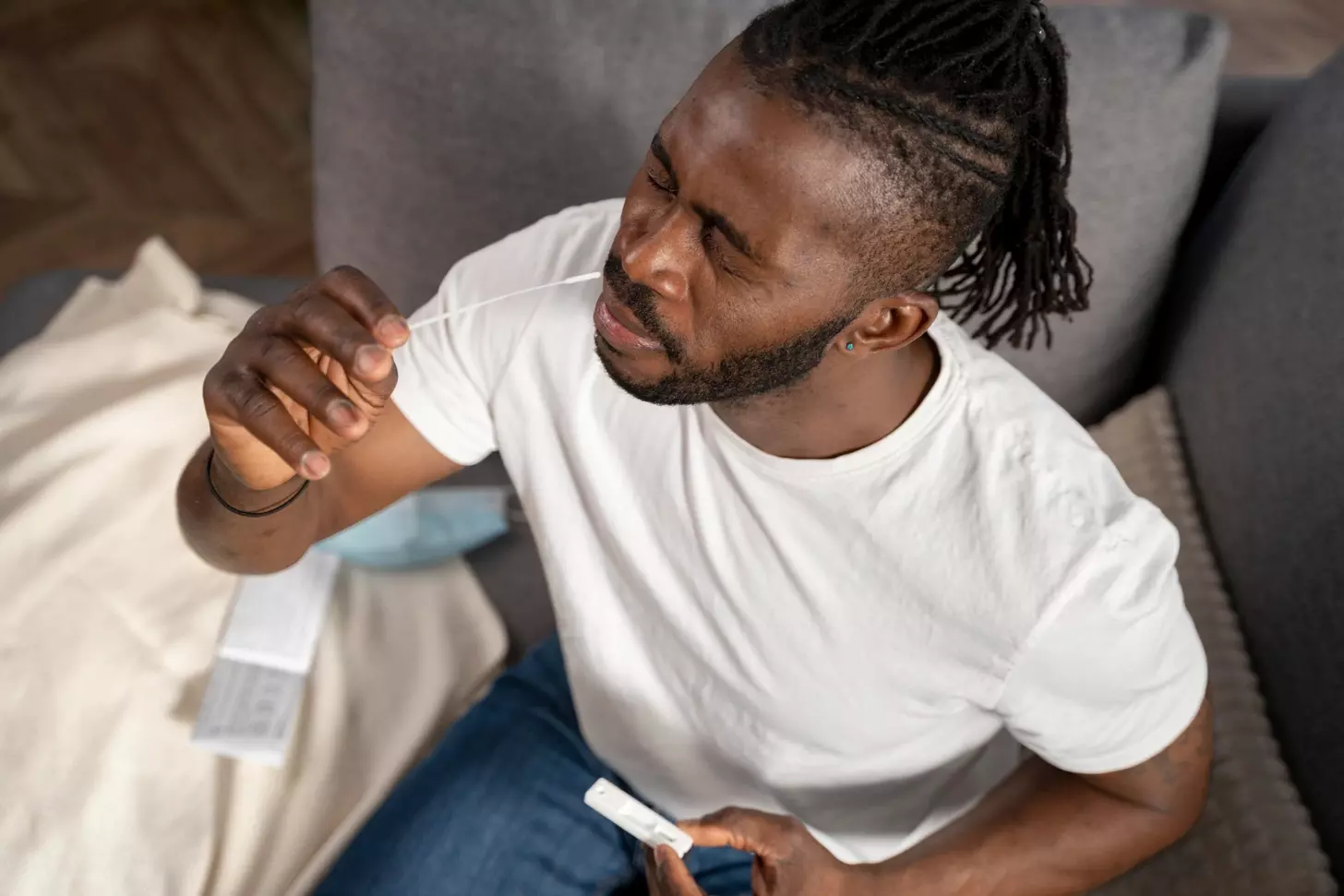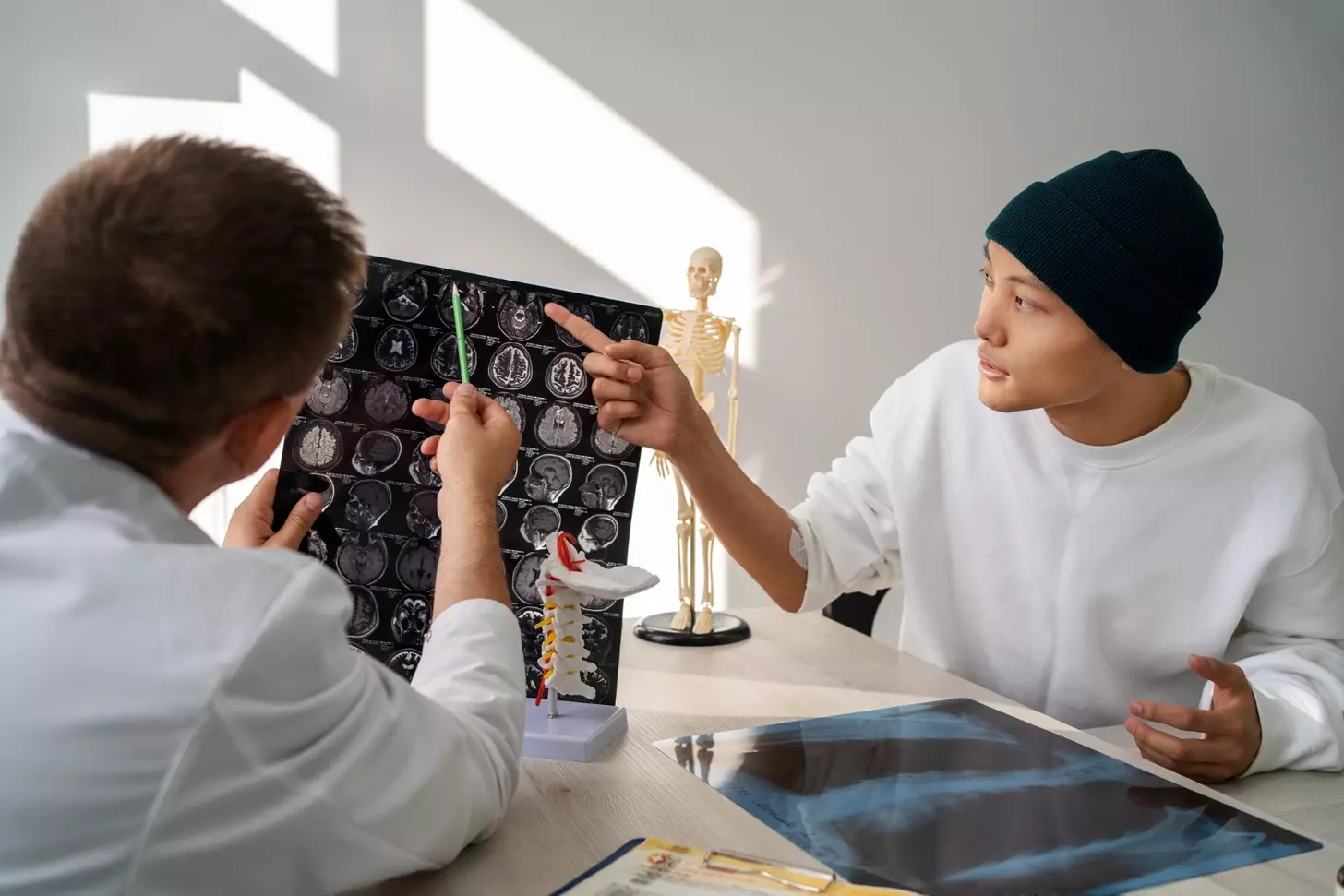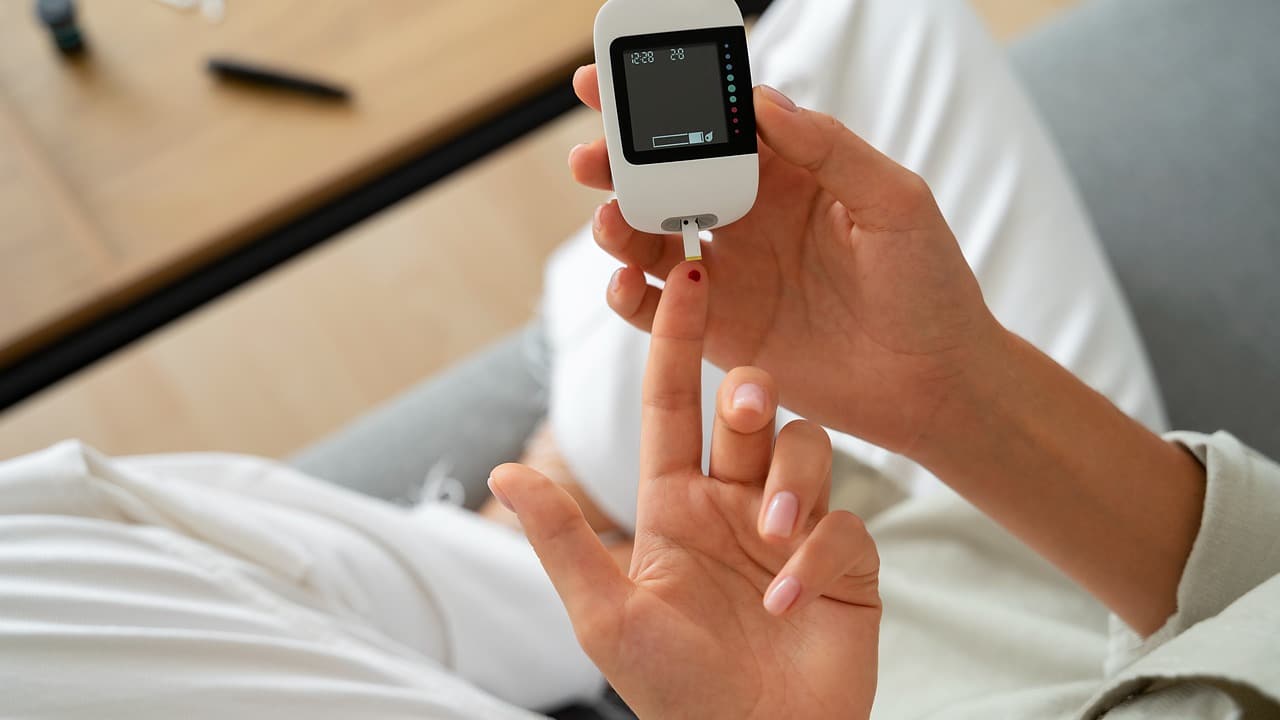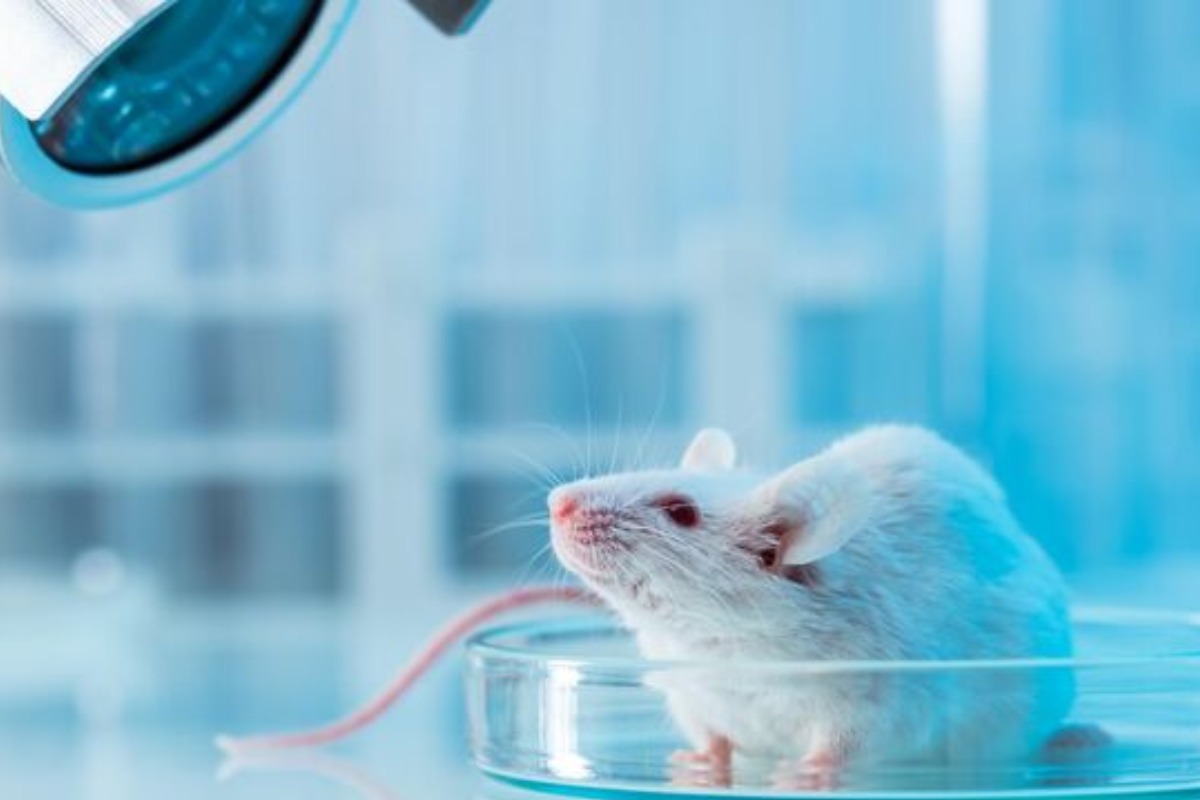Last Updated on November 26, 2025 by Bilal Hasdemir

Overcoming addiction is tough, but it’s doable with the right help. Millions worldwide struggle with this every year. Luckily, about 73% of adults in recovery say they’ve beaten their addiction.
At Liv Hospital, we take a full approach to addiction recovery. We mix medical care, counseling, and self-help for lasting results. Our patient-focused method means you’re never alone in your fight.
Key Takeaways
- Combining medical treatment, counseling, and self-help is key for lasting recovery.
- A complete recovery plan boosts success rates.
- Support groups are essential for staying sober.
- Liv Hospital’s patient-centered method offers trusted support every step of the way.
- Recent data shows about 73% of adults in recovery have overcome their addiction.
Understanding Addiction as a Treatable Condition
Addiction is now seen as a treatable condition, not a moral failing. This change is key for those fighting addiction. It means they can find effective ways to recover.
The Science Behind Addictive Behaviors
Addictive behaviors come from biology, psychology, and environment. Studies show addiction changes the brain’s reward and decision-making systems. To treat it, we need medical, therapy, and social support.
Knowing how addiction works helps us make better choices for care. It lets us tackle addiction more effectively and achieve lasting recovery.
Common Misconceptions About Addiction
Many think addiction shows weakness or personal failure. But, research proves it can hit anyone, no matter their background.
Another myth is that people with addiction can’t control themselves. But, many do manage their addiction and recover with the right help. By clearing up these myths, we can support those seeking recovery better.
Recovery Statistics and Success Rates
About 73% of adults in recovery say they’ve broken free from addiction. This shows modern treatments work and people can recover.
Recovery is a personal journey, but the numbers give hope. With the right support, anyone can beat addiction and live a better life.
Recognizing When You Need Help
It’s important to know the signs of addiction to start a healthier life. Seeing when a habit turns into an addiction can be hard. But, it’s a key step towards getting better.
Signs Your Habit Has Become an Addiction
There are several signs that show a habit might be an addiction. These include:
- Increased tolerance to the substance or behavior
- Withdrawal symptoms when trying to stop or cut down
- Loss of control over how often or how much you do it
- Ignoring important tasks or activities because of it
- Keeping doing it even when it causes problems
If you see many of these signs, it’s likely you need professional help.
Self-Assessment Tools
Self-assessment tools can help you understand your situation. They usually are questionnaires or quizzes that check how much the behavior or substance use affects your life. These tools aren’t perfect, but they can give useful insights and push you to get a professional check-up.
Common self-assessment tools include:
- Addiction severity indexes
- Substance use disorder questionnaires
- Behavioral health assessments
Overcoming Denial and Resistance
Denial and resistance are big hurdles to getting help for addiction. To get past them, you need to think about it, get support, and sometimes, professional help. It’s key to see the problem and know that asking for help is brave, not weak.
Strategies for overcoming denial and resistance include:
- Talking openly with health professionals
- Joining support groups to share and learn from others
- Learning about addiction and recovery
By doing these things, you can move past denial and start your recovery journey.
Preparing for the Recovery Journey
A good recovery plan is key to beating addiction and living healthier. Recovery is a journey with many important parts.
Setting Realistic Expectations
Starting with realistic goals is a big step in recovery. Knowing recovery has ups and downs helps stay focused. Celebrate every small win.
Setting realistic goals means knowing the tough times but staying hopeful. It’s about being optimistic but ready for challenges.
Building Your Support Network
A strong support network is essential for recovery. This includes family, friends, support groups, and doctors. A good support system offers encouragement and guidance.
- Family and friends who support the recovery
- Support groups for a sense of community
- Healthcare professionals for medical help
Having people who believe in you is very important.
Creating a Recovery-Friendly Environment
Making your living space recovery-friendly is also key. This means making changes to help stay sober and avoid relapse.
Steps include:
- Removing things linked to addiction
- Making your home safe and comfy
- Starting routines like exercise and healthy food
These steps can really help with recovery.
Research shows a good recovery plan boosts success. We’ll keep looking at how to treat addiction and stay sober.
How to Stop a Addiction: Comprehensive Treatment Approaches
Stopping an addiction requires a detailed plan. It’s not just about quitting; it’s about healing the body and mind. We know that beating addiction is tough and needs a custom plan.
Medical Detoxification and Withdrawal Management
Medical detox is the first step in recovery. It helps people safely stop using substances. Doctors watch over the process to keep everyone safe and comfortable. Detox can happen in hospitals or outpatient centers, based on the addiction’s severity and the person’s health.
The main goal of detox is to manage withdrawal symptoms. It’s a key step towards lasting recovery. It needs caring support and, sometimes, medicine to help with withdrawal.
Inpatient vs. Outpatient Programs
Choosing between inpatient and outpatient care is a big decision. Inpatient programs offer a safe, structured place to live and get help 24/7. They’re best for serious addictions or mental health issues.
Outpatient programs let people get help while living at home. They’re good for milder addictions or for those who’ve already been in inpatient care.
Medication-Assisted Treatment Options
Medication-Assisted Treatment (MAT) uses medicine with counseling and therapy. It’s great for opioid and alcohol addiction. Medicines in MAT are chosen based on the person’s needs and addiction type.
With medicine and care, MAT offers a full recovery plan. It helps people through treatment and into lasting sobriety.
Therapeutic Approaches That Work
Recovering from addiction often needs a mix of therapies that fit each person’s needs. Every person’s battle with addiction is different. So, knowing the various therapies is key to creating a treatment plan that works.
Cognitive Behavioral Therapy
Cognitive Behavioral Therapy (CBT) helps by changing negative thoughts and behaviors linked to addiction. CBT helps people understand why they got addicted and learn ways to fight cravings and stay sober.
Motivational Interviewing
Motivational Interviewing helps people want to change by solving doubts and boosting motivation to stop using drugs. This method is great at the start of recovery when people are unsure if they can beat addiction.
Dialectical Behavior Therapy
Dialectical Behavior Therapy (DBT) mixes CBT with mindfulness to manage emotions and improve relationships. DBT is great for those with mental health issues like borderline personality disorder.
Trauma-Informed Care
Trauma-Informed Care recognizes the link between trauma and addiction. It creates a safe space for healing, helping people deal with their past and find better ways to cope.
Using these therapies in a treatment plan can greatly improve someone’s chances of staying sober. We team up with healthcare experts to pick the right therapies for each person’s unique situation.
The Power of Support Groups and Community Resources
Support groups and community resources are key in recovery. They give a sense of community and understanding. This is vital for beating addiction.
12-Step Programs and Alternatives
12-step programs like Alcoholics Anonymous (AA) and Narcotics Anonymous (NA) are well-known. They offer a structured way to recover. But, they might not fit everyone’s needs.
Alternatives to 12-step programs exist for different needs. These include:
- SMART Recovery, which focuses on self-empowerment and evidence-based techniques
- LifeRing, a secular organization that emphasizes sobriety and peer support
- Women for Sobriety, a program tailored to the specific needs of women in recovery
Peer Support Specialists
Peer support specialists have gone through addiction and recovery. They guide and support those in recovery. Their personal experience is invaluable.
They work in treatment centers, support groups, and community organizations. They offer a unique connection. This can be very helpful for those feeling isolated or unsure.
Online Recovery Communities
Digital technology has grown online recovery communities. These platforms are safe spaces for connection and support. People can share their experiences from home.
Online forums and social media groups are great for those with busy lives or limited mobility. They also offer anonymity, which some find appealing.
Some notable online recovery resources include:
- InTheRooms.com, a platform with online meetings and support groups
- Recovery.org, a website with information, support, and online communities
Using these support groups and resources helps build a strong recovery network. This network supports long-term recovery and well-being.
Developing Healthy Coping Mechanisms
Healthy coping mechanisms are key in recovery. They help us deal with stress and avoid falling back into old habits. It’s important to find strategies that keep us well and strong.
Stress Management Techniques
Managing stress is vital in recovery. Deep breathing, muscle relaxation, and journaling can help. Quiet self-improvement also helps by calming us down and lowering anxiety.
Using these methods daily can help us handle stress better. It’s about finding what works for you and doing it regularly.
Mindfulness and Meditation Practices
Mindfulness and meditation are great for recovery. They lower stress and help us control our emotions. These practices keep us in the moment, away from negative thoughts.
Mindfulness is simple, like focusing on our breath or walking mindfully. Regular meditation changes our brain, helping us recover and feel better overall.
Physical Exercise as Recovery Support
Exercise is a big help in recovery. It boosts our mental and physical health. It can cut cravings, lift our mood, and improve our overall well-being.
Doing regular physical activities like walking, jogging, or yoga is great. It’s important to pick something you enjoy to keep doing it.
Managing Triggers and Preventing Relapse
Recovery is more than just stopping an addiction. It’s about learning to handle triggers that could lead to relapse. Managing triggers and preventing relapse are key to long-term recovery. Studies show that knowing your personal triggers and having a plan can greatly lower relapse risk.
Identifying Personal Triggers
Knowing what triggers cravings is a big step in managing them. Triggers can be emotional, environmental, or social. By figuring out these triggers, you can find ways to avoid or deal with them.
Stress, certain social situations, and places where the addictive substance is present are common triggers. Keeping a journal to track cravings can help spot patterns and specific triggers.
Creating an Effective Relapse Prevention Plan
A relapse prevention plan outlines steps to manage triggers and avoid relapse. It should be tailored to your specific triggers and needs.
Key parts of a relapse prevention plan include:
- Identifying triggers and strategies to manage them
- Developing coping skills for high-risk situations
- Building a support network of friends, family, and professionals
- Regularly reviewing and updating the plan as needed
| Trigger | Coping Strategy | Support Needed |
|---|---|---|
| Stress | Meditation, Exercise | Friends, Therapist |
| Social Situations | Avoiding certain events, Having a sponsor | Support Group, Sponsor |
| Environmental Triggers | Changing daily routines, Avoiding certain places | Family, Recovery Coach |
Emergency Strategies for Intense Cravings
Even with a plan, intense cravings can happen. It’s important to have emergency strategies ready to handle these cravings.
Some effective strategies include:
- Calling a support person or sponsor
- Engaging in a distracting activity
- Using mindfulness or meditation techniques
- Reminding oneself of the reasons for recovery and the consequences of relapse
Being proactive and prepared can help reduce relapse risk and keep recovery on track.
Building a Sustainable Sober Lifestyle
Creating a sustainable sober lifestyle means more than just quitting drugs or alcohol. It’s about building healthy habits, finding purpose, and making connections. As you move forward in your recovery, aim to live a life that supports your sobriety for the long haul.
Restructuring Daily Routines
Changing your daily routines is key to a sustainable sober lifestyle. It’s about swapping old habits for new, healthier ones that help you stay sober. Simple steps like getting regular sleep, staying active, and practicing mindfulness can make a big difference.
By adding these habits to your day, you create a sense of order and normalcy. This helps prevent relapse. It’s also important to steer clear of things that might trigger a return to substance use.
Finding Purpose and Meaning
Finding purpose and meaning is essential for a lasting sober lifestyle. Doing things that bring you joy and fulfillment helps you feel connected and motivated to stay sober.
This could mean exploring new hobbies, volunteering, or tackling new challenges. Discovering new sources of purpose and meaning helps build a stronger, more fulfilling life in recovery.
Developing Healthy Relationships
Building healthy relationships is vital for staying sober. Being around positive, supportive people gives you a sense of belonging and support, which is key for long-term recovery.
This means investing in relationships with supportive family and friends. It also means making new connections through support groups or social activities. Healthy relationships offer a safety net during tough times and help you stay focused on your recovery goals.
Addressing Co-occurring Mental Health Issues
Dealing with mental health issues alongside addiction is a big part of building a sustainable sober lifestyle. Many people with addiction also face conditions like depression or anxiety.
Getting professional help and learning coping strategies can help manage these issues. This reduces the risk of relapse. Treatment that tackles both addiction and mental health can lead to better recovery outcomes.
Conclusion: Embracing a Future Beyond Addiction
Breaking free from addiction means making a long-term commitment to recovery. It’s about finding new ways to overcome addiction. We’ve looked into how addiction works and how to beat it.
Understanding addiction as a treatable condition is key. Using all the right treatment methods can lead to a happy life without addiction.
Studies show that the right support can help keep recovery going. We talked about the need for a strong support network and healthy ways to deal with stress. Changing daily habits and finding purpose can help stay sober.
In conclusion, beating addiction is a tough but doable journey. It takes hard work, determination, and support. We urge those fighting addiction to get help and start their journey to a better life.
FAQ
What are the first steps to overcoming addiction?
First, recognize the signs of addiction. Then, seek professional help. Start a treatment plan that includes detox, therapy, and support groups.
How do I know if I need help for my addiction?
If substance use harms your life, like causing health issues or problems at work, you might need help. Use self-assessment tools and talk to a doctor to decide.
What is the role of therapy in addiction recovery?
Therapy helps you understand why you’re addicted. It teaches coping skills and improves your mental health. Cognitive Behavioral Therapy and Motivational Interviewing are effective.
How can support groups aid in recovery?
Support groups offer a community of people facing similar challenges. They provide support and understanding. 12-step programs and online communities are great resources.
What are some strategies for managing triggers and preventing relapse?
Know your triggers and plan for relapse. Manage cravings with emergency strategies. Build a support network and practice stress management.
How can I build a sustainable sober lifestyle?
Create a sober lifestyle by changing your daily routines. Find purpose and build healthy relationships. Address mental health issues for a fulfilling life.
What are the benefits of medication-assisted treatment for addiction?
Medication-assisted treatment (MAT) combines medication with therapy. It helps manage withdrawal and cravings. It’s effective for opioid and alcohol addictions.
How can I stay committed to my recovery journey?
Stay committed by setting realistic goals and building a support network. Engage in therapy and support groups. Healthy coping mechanisms keep you motivated.
Are there online resources available for addiction recovery?
Yes, there are many online resources. They include support groups and educational materials. These can offer valuable support and guidance.
How can I help a loved one who is struggling with addiction?
Encourage them to seek help and offer emotional support. Educate yourself about addiction. Avoid enabling behaviors and support their treatment plan.
References
- National Institute on Drug Abuse (NIDA). (2025). Reflecting on NIDA’s 50th Year and Looking to 2025. Retrieved from https://nida.nih.gov/about-nida/noras-blog/2025/01/reflecting-nidas-50th-year-looking-to-2025
- Drug Abuse Statistics. (n.d.). Retrieved from https://drugabusestatistics.org








